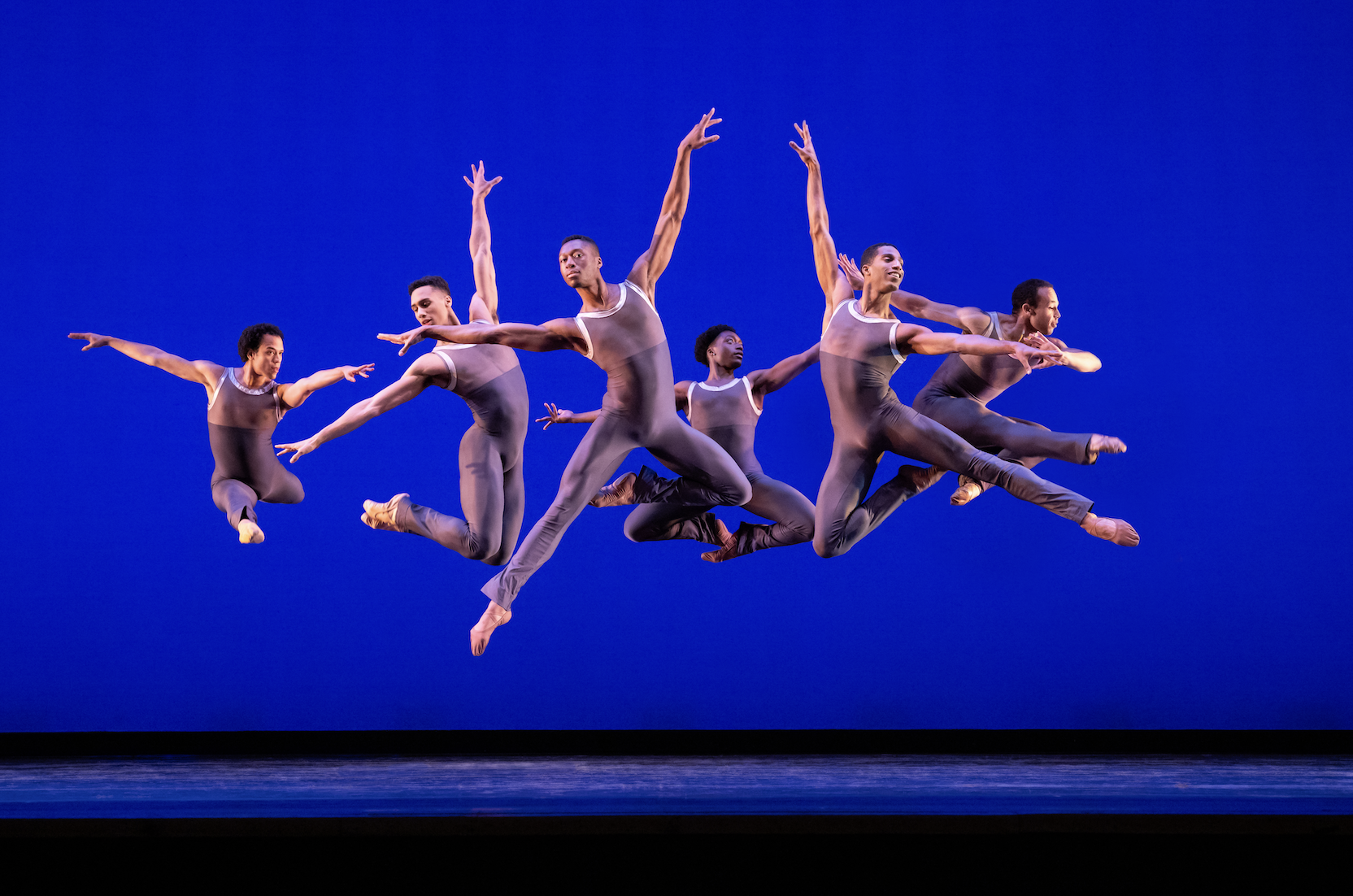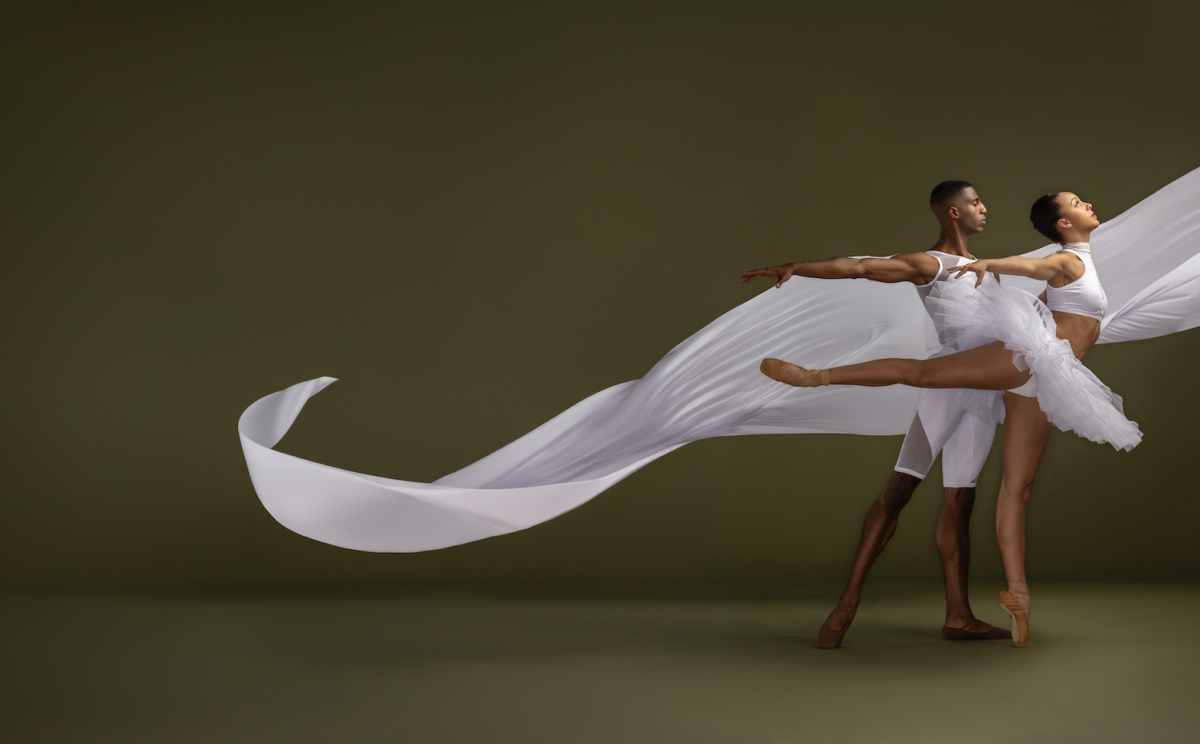In the aftermath of Dr. Martin Luther King Jr.’s assassination in Memphis, the famed ballet dancer Arthur Mitchell derailed his plans to start a company in Brazil in favor of founding one in Harlem, his birthplace. Harlem, after all, was responsible for his success, yet an under-resourced and untapped community. And so, in 1969, the Dance Theatre of Harlem (DTH), as it was named, started with 30 children in a church basement. Two months later, that number grew to 400. Now, as Jennifer McGrath, Orpheum Theatre vice president of education, community engagement, and Halloran Centre programming, says, “Dance Theater of Harlem is one of the preeminent dance companies in the entire world. These are extraordinary artists with extraordinary talent.”
And they’re on their way to Memphis to perform at the Orpheum Friday, February 7th, at 7:30 p.m. and Saturday, February 8th, at 2 p.m. and 7:30 p.m. “We’re absolutely thrilled to have them,” says McGrath. “The artists are extraordinary, their passion, their ability to make you feel something, to be drawn into their performance, and what they give is truly extraordinary.”
While a ballet company in name (and the first Black classical ballet company), DTH’s programming often blends styles of dance. For its Memphis performances, the program includes two of artistic director Robert Garland’s pieces: New Bach and Higher Ground.
New Bach is set to the music of Johann Sebastian Bach and combines ballet with street style, creating a “new and different style,” says Garland. Meanwhile, Higher Ground blends ballet and African-American and African-diaspora social dances to the music of Stevie Wonder. “This ballet looks at the current affairs of the world through the 1970s lens of his music,” the artistic director says.

When asked why he incorporates different styles, Garland says, “I found that the dancers that I worked with were very well-versed not only in ballet but also in other styles, and so I wanted to give them an opportunity to be on both sides of the hyphen [in African-American], both African and American.”
Also on the program are Take Me With You set to music by Radiohead and Blake Works IV set to music by James Blake. “So there’s sure to be something for everyone to connect to,” says McGrath.
The company will also lead a free community dance workshop on Saturday, February 8th, at 10 a.m. at the Halloran Centre. For it, Garland says the company members plan to use the music of John Coltrane “to do a demonstration about the rudiments and fundamentals of becoming a ballet dancer.” The free workshop is open to all ages and abilities, but space is limited. (Register here.)
“We’ve done these free community dance workshops with other dance companies, and I honestly think they’re some of my favorite days of the year that we’ve had,” McGrath says. “You know, we have 3-year-old grandbabies dancing next to their 85-year-old grandma. We’ve had everybody under the sun from professional dancers and teachers of dance companies to have somebody that maybe has never taken a dance class in their life. It’s really just about being together in community. It’s just an example of the power of the arts.”
In a further effort of community outreach and engagement, DTH, on the invitation of the Orpheum, visited Memphis this past December to teach master classes at Campus Schools, Collage Dance Collective, and Middle College High School and to perform at St. Jude Heroes Celebratory Pasta Party and First Baptist Church Broad Avenue. (Fun fact: Kevin Thomas, Collage Dance’s artistic director and co-founder, was a principal dancer for DTH before he came to Memphis.)
Overall, McGrath hopes that DTH’s visits, past and future, will inspire more support for dance in Memphis. “We know Memphis as a Music City, which it undoubtedly is,” she says. “And I come from New York, and prior to living here, I made my career in dance. And Memphis is one of the most dance-rich communities I have ever experienced.
“… And so we want to be bringing a company like Dance Theatre of Harlem, and then also get those ticket buyers to go out and support Collage and support Ballet Memphis and support new Ballet [Ensemble] and so on because we can really raise the entire ecosystem together.”
Tickets ($62.50-$97) to see Dance Theatre of Harlem perform at the Orpheum can be purchased here. Following the Saturday, February 8th, matinee performance, audience members will be invited to a Q&A session.
